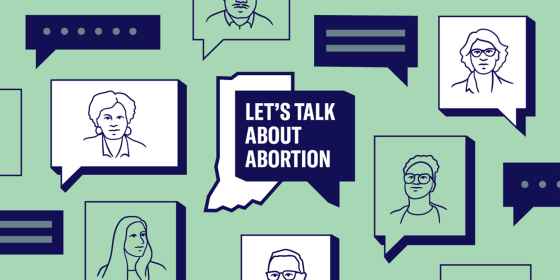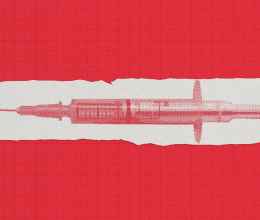COVID-19 could claim the lives of approximately 100,000 more people nationwide than current projections stipulate if jail populations are not dramatically and immediately reduced, according to a new epidemiological model released today by the ACLU and academic research partners. The findings indicate that — even if communities across the United States continue practicing social distancing and following public health guidance — they will still experience much higher death rates if no substantial action is taken to reduce jail populations.
“We are likely facing massive loss of life — both in Indiana jails and in our communities — if dramatic steps aren’t taken to reduce our incarcerated population,” said Jane Henegar, ACLU of Indiana Executive Director. “Mass incarceration was a major public health crisis before the outbreak of COVID-19, but this pandemic has pushed it past the breaking point. In our state, we know that before this outbreak, overcrowding was already an issue in more than 75 percent of county jails, and black people accounted for 34 percent of the prison population and only 9 percent of the state’s adult population. This data is a wakeup call as to the true cost of 50 years of mass incarceration and its impact on communities across the nation, disproportionately communities of color.”
The U.S. is the largest incarcerator in the world, with just four percent of the world’s population and 21 percent of its incarcerated population. About 40 percent of all incarcerated people suffer from at least one chronic health condition, such as asthma or diabetes. This means the U.S. faces a unique challenge in mitigating the spread of COVID-19 and is likely facing a much higher death count than models based on data from other countries predict.
The ACLU model used data pulled from more than 1,200 midsize and large jail systems around the country, whose surrounding communities account for 90 percent of the U.S. population. It found that, unequivocally, keeping people out of jail saves lives — both inside the jail and in the surrounding community. Other key findings from the model include:
- If a model that doesn’t account for jails predicts the U.S. death toll will be 100,000, our model shows that that projection undercounts deaths by 98 percent. Actual deaths, once we account for jails, could be more than double, rising to 200,000.
- Implementing swift, bold reforms to reduce arrests by 50 percent can save 12,000 lives in jails, and 47,000 lives in the surrounding communities.
- Aggressive action and policy change could save as many as 23,000 people in jail and 76,000 in the broader community if we stop arrests for anything but the five percent of crimes defined as most serious by the FBI — including murder, rape, and aggravated assault — and double the rate of release for those already detained.
- States that have begun to reduce their jail populations are quantifiably saving lives. Colorado, for example, has so far achieved a 31 percent reduction in jail population. Our model found this likely will save 1,100 lives — reducing total lives lost in the state by 25 percent.
- Every day that goes by without action means more people will die. Delaying action for a week could mean a difference of 18,000 lives lost in the U.S.
“The prevailing epidemiological models largely fail to take into account our incarceration rates and the complete absence of social distancing in our jails — which is why we had to build our own model,” said Lucia Tian, chief analytics officer, ACLU. “While we always knew that jails would have an impact on loss of life in this pandemic, the model shows us just how large that impact may be — that even under our best case scenarios, we could be looking at 100,000 more deaths. We can't save our community while ignoring our jails.”
The original model was developed by Dr. Nina Fefferman at the University of Tennessee, Dr. Eric Lofgren at Washington State University, and Dr. Kristian Lum from the University of Pennsylvania, in collaboration with Aaron Horowitz and Brooke Madubuonwu of the ACLU’s data analytics team, experts from the ACLU and other corrections organizations contributed expertise.
Over the past month, the ACLU of Indiana has taken several steps to urge officials to reduce the number of Hoosiers who are incarcerated. Starting on March 18, the ACLU of Indiana sent a letter to Governor Holcomb and the mayors, sheriffs, and police chiefs of the 10 largest cities in Indiana, asking them to take steps recommended by public health experts to slow the spread of COVID-19 in jails and prisons. Following this letter, the ACLU of Indiana submitted an emergency petition requesting the Indiana Supreme Court take immediate action designed to stem the progression of COVID-19 in the Indiana Department of Correction (DOC) and Indiana’s county jails. The petition was denied.
As Indiana experiences an increase in COVID-19 cases in jails and prisons, as well as the first deaths, the ACLU of Indiana is calling on Hoosiers to contact Governor Holcomb demanding Indiana take proactive steps that will decrease the chances of an outbreak in jails and prisons and save thousands of lives.
The white paper with key results outlined can be found, here.
The original academic paper on Allegheny County can be found on MedRxiv, here.



